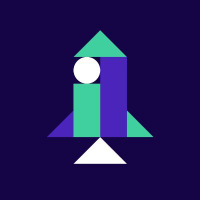
DeployHQ
Automate your deployment workflows with DeployHQ for effortless code management.
Docker, Inc.
Docker is a pivotal platform in the world of software development, enabling developers to create, deploy, and run applications in isolated environments known as containers. This technology allows developers to package applications along with their dependencies and configurations, ensuring they work seamlessly in any environment. With Docker, teams can streamline their development pipelines, improve collaboration, and enhance application scalability. This has made Docker a preferred choice among developers and enterprises for efficiently managing applications, especially in distributed systems.
One of the standout features of Docker is its ability to enable consistent environments across different stages of development. For example, a developer may code an application on their local machine, while it later runs exactly the same on a production server, eliminating the common problem of ‘it works on my machine’ scenarios. The use of Docker images, which serve as templates for creating containers, allows for rapid application deployment. By storing these images in a central repository like Docker Hub, teams can ensure that everyone has access to the same version of the application, creating a level of standardization that fosters collaboration and reduces integration issues.
Additionally, the resource efficiency of containers provides substantial benefits. Multiple containers can run on the same machine, allowing companies to save on server costs while maximizing resource utilization. Companies such as Spotify and ADP utilize Docker to run microservices architecture effectively, which further enhances their operational agility.
Another significant aspect of Docker is its support for Continuous Integration and Continuous Deployment (CI/CD) pipelines. It integrates seamlessly with various CI/CD tools, allowing for automated testing and deployment. This automation accelerates feedback loops, thereby enabling teams to deliver updates quickly and reliably.
Security is also a priority with Docker, which provides various tools for monitoring and ensuring the integrity of containers. Companies can enforce security policies at both the application and infrastructure level, and Docker’s security scanning helps teams detect vulnerabilities within container images.
Basic plan for individual developers
This tool offers both free and paid plans. Check their website for detailed pricing information.
Docker provides comprehensive platform support across Web browsers, Windows computers, Mac computers, Linux systems. This cross-platform availability ensures you can access and use the tool wherever you work, providing a seamless experience across all your devices.
Docker offers a flexible pricing structure with both free and paid plans to accommodate different needs and budgets.
Docker prioritizes security and data protection with a comprehensive set of features, including Single Sign-On, Multi-Factor Authentication, End-to-End Encryption, Audit Logs, Data Backup. The platform complies with major security standards and regulations, including GDPR (General Data Protection Regulation), PCI DSS (Payment Card Industry Data Security Standard).
Docker is specifically designed to meet the needs of startups, small businesses, enterprise organizations, freelance professionals, remote teams, developers. The tool provides features and functionality specifically tailored to address the unique challenges and requirements of these user groups.
Docker offers several significant advantages, including lightweight and fast performance, supports microservices architecture, extensive community and ecosystem, integration with popular ci/cd tools, cross-platform compatibility, version control for applications, robust security features, scalable across various environments. However, potential users should consider some limitations, such as steeper learning curve for beginners, may require additional orchestration tools for large systems, not all applications are suitable for containerization, resource overhead in multi-container setups, limited support for gui applications, network complexities in microservices, differences in os-level virtualization, potential security risks if images are not scanned.
Docker is built on and integrates with modern technologies including Node.js, Python, Java. This robust technological foundation ensures reliable performance, scalability, and seamless integration capabilities.
Docker is versatile and can be used in various scenarios, including: Development environments, Microservices deployment, CI/CD automation, Application testing, Cloud migration, Environment consistency across teams, Resource optimization in production, Scaling applications on-demand, Run batch processing jobs, Integration with Kubernetes for orchestration. These use cases demonstrate the tool's flexibility and broad applicability across different business needs.
Docker was established in 2010 and is headquartered in San Francisco, USA. Since its inception, the platform has evolved and grown to become a trusted solution in its field.
Jobicy
578 professionals pay to access exclusive and experimental features on Jobicy
Free
USD $0/month
For people just getting started
Plus
USD $8/month
Everything in Free, and:
Docker has significantly altered the way I approach application deployment and environment consistency. The containerization feature allows for seamless packaging of applications with their dependencies, minimizing issues during system transitions. Managing containers through Docker Compose simplifies multi-container applications, which is particularly useful for projects requiring several services to interact.
I appreciate how Docker Hub facilitates quick access to pre-built images, but I’ve occasionally encountered discrepancies between local setups and production environments. While it excels in creating isolated environments, learning its intricacies can be time-consuming for newcomers. Overall, it’s a robust tool that streamlines workflows when used effectively.
Docker is pretty awesome for spinning up my dev environments! Love how easy it makes syncing different apps and dependencies – it’s a total breeze. The only thing that kinda annoys me is when images get super large, which can slow stuff down. But honestly, can’t complain because the flexibility is worth it! Overall, I’m happy with it & def recommend if you’re into containerization!